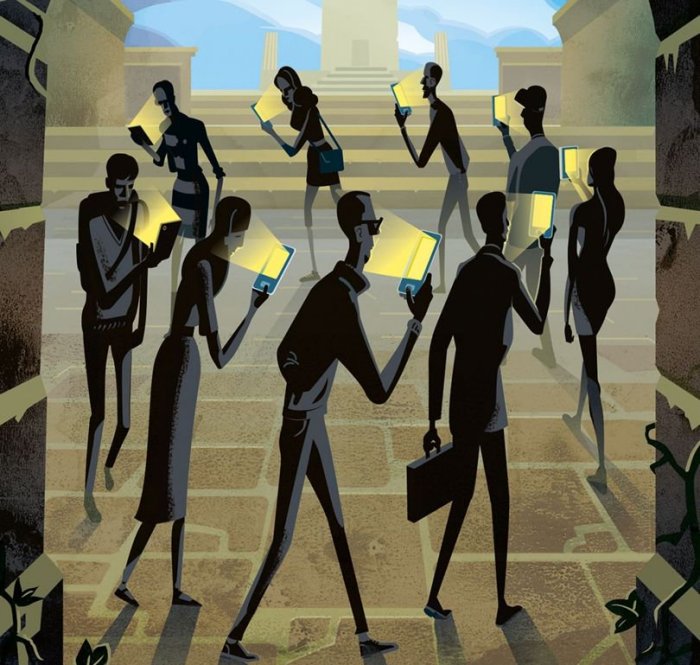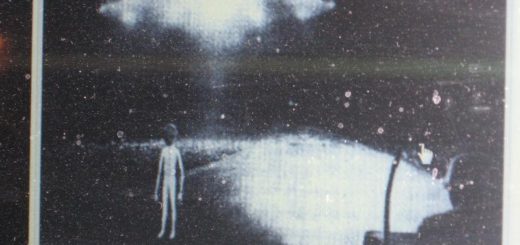Humans In Danger Of Being Replaced By Godlike ‘Homo Deus’ Soon– History Professor Warns
What are the benefits and risks of artificial intelligence? Artificial intelligence can very beneficial to our society, but some experts express concern about the merge of humans with AIs. What happens when biotechnology and artificial intelligence merge, allowing us to re-design our species?
One historian warns that humans are in danger of being replaced by god-like ‘Homo Deus’.
Yuval Noah Harari is Professor of history at University of Jerusalem and author of the bestseller Homo Deus: A Brief History of Tomorrow.

Professor Harari thinks Homo sapiens, as we have known it for thousands of years, will cease to exist within a century or two. This is because we are using high-tech to upgrade ourselves into something different; something which is far more different from us than we are different from Neanderthals.
Breakthroughs in biotechnology, including gene-editing methods offers opportunity change our genes, our bodies, and perhaps our brains.
Such experiments can lead to unexpected and even unwanted changes in our society.
At the same time, scientists are developing brain-computer interfaces that will eventually will blur the line between man and machine.
Our technology dependence is increasing, even when it comes to simple tasks. For example, we use smartphones daily to make decisions.
Our ancestors used stone tools to shape their society thousands of years ago. Modern humans are more focused on making changes to their bodies.
We are entering a new and somewhat uncertain era, in which rather than using tools, the tools might be using us.
“People are delegating more responsibility to AI and they are already merging with their smartphones and their Facebook accounts,” Professor Harari said.
“These are no longer dumb tools like a hammer or a knife — they are intelligent entities that constantly study us, adapt to our unique personality, and actively shape our worldview and our innermost desires.”
In the future Harari envisions, we’ll gradually merge with machines thanks to biometric sensors and brain-computer interfaces.
“Humans will merge with computers and machines to form cyborgs — part-organic, part-bionic life forms,” Professor Harari said. “You could surf the Internet with your mind; you could use bionic arms, legs, and eyes; you will augment your organic immune system with a bionic immune system, and you will delegate more and more decisions to algorithms that know you better than you know yourself.”
Soon we will be able to select “designer bodies,” as though shopping from a catalog, Professor Harari speculates.
“However, in the longer term — perhaps in the 22nd century — the human body is likely to lose its relevance and appeal,” he said. As our mastery over materials progresses, we may go “beyond material structures altogether. We might reach a point when minds could surf cyberspace directly, and adopt there any kind of form we fancy, irrespective of the laws of biology or even physics.”
“Today we have organic bodies, hence at any one time, we can be only in one place. But a future cyborg may have an organic brain connected via a brain-computer interface to numerous arms, legs, and other tools that could be scattered all over the world. Your brain could be in New York, while your hands will be fighting insurgents in Afghanistan or performing heart surgery in Egypt. So where are you?”
Should ‘Homo Deus’ be treated as human? The creature will be a new species of human, but he or she will not resemble us. Professor Harari believes these changes will come gradually as our relationship with the machines becomes slowly but inexorably more intimate.
Our species “is likely to upgrade itself step by step, merging with robots and computers in the process,” he wrote in his latest book, “until our descendants will look back and realize they are no longer the kind of animal that wrote the Bible, built the Great Wall of China, and laughed at Charlie Chaplin’s antics.”
Whether this development is good or bad is a matter of opinion, but everything indicates professor Harari gives a realistic view of the future.



 Creators of mankind
Creators of mankind Description of “Tall white aliens”
Description of “Tall white aliens” Where they came from?
Where they came from? About hostile civilizations
About hostile civilizations The war for the Earth
The war for the Earth “Tall white aliens” about eternal life
“Tall white aliens” about eternal life Video: “Nordic aliens”
Video: “Nordic aliens” Aliens
Aliens Alien encounters
Alien encounters The aliens base
The aliens base UFO
UFO Technology UFO
Technology UFO Underground civilization
Underground civilization Ancient alien artifacts
Ancient alien artifacts Military and UFO
Military and UFO Mysteries and hypotheses
Mysteries and hypotheses Scientific facts
Scientific facts


















